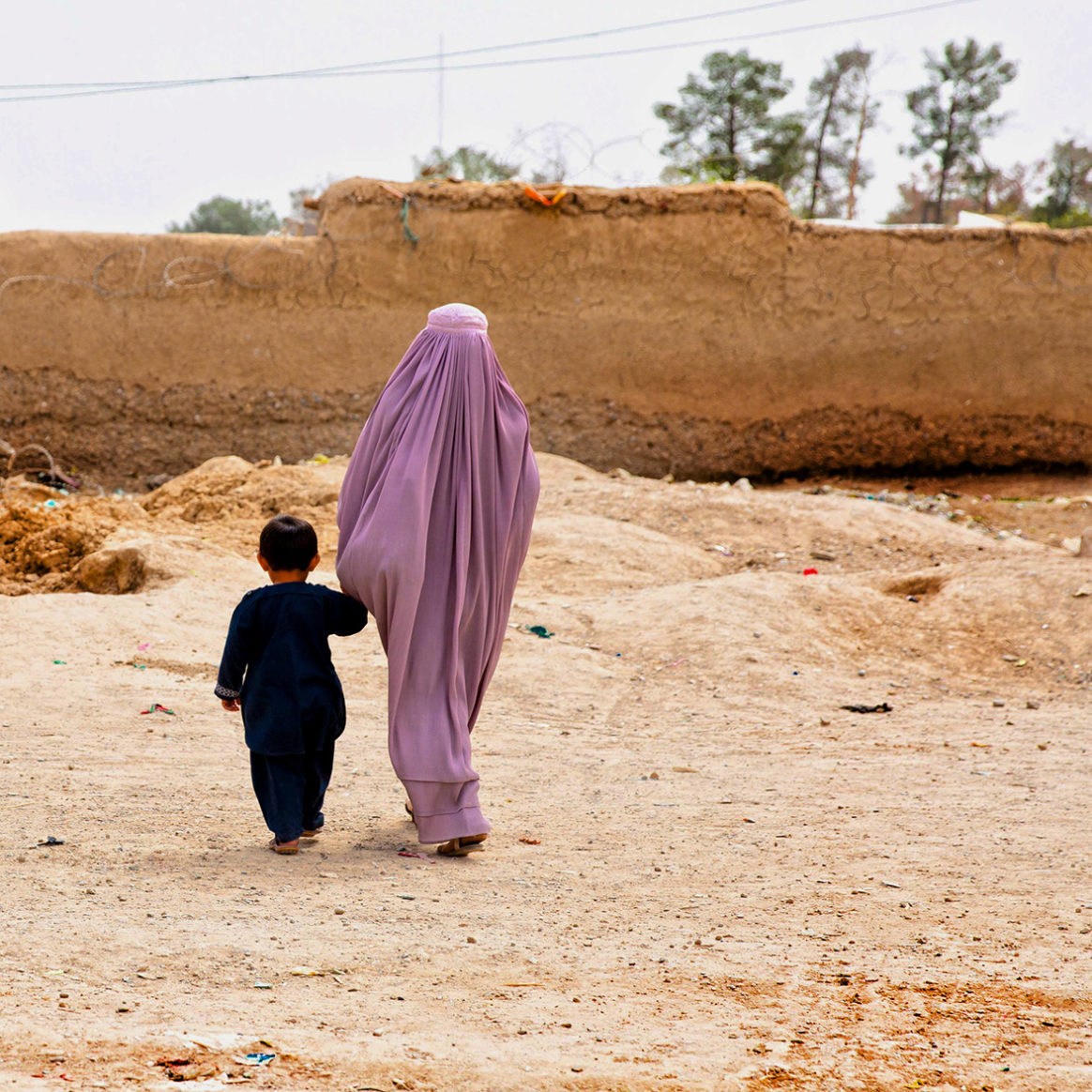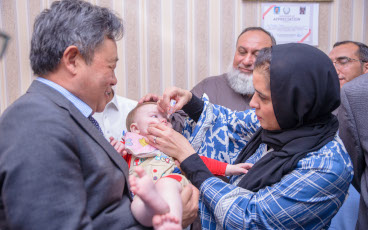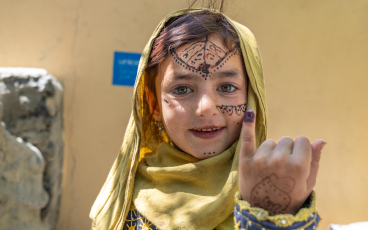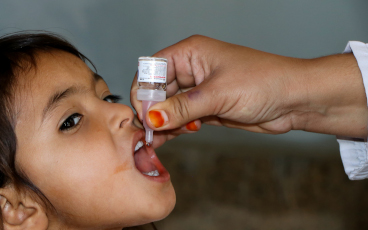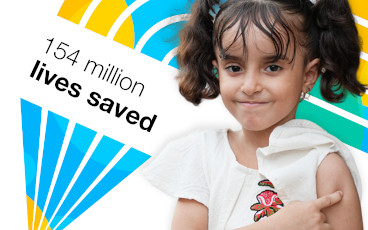“I won’t stop working until every child is protected”
Afia is part of one of the biggest female work forces in Afghanistan.
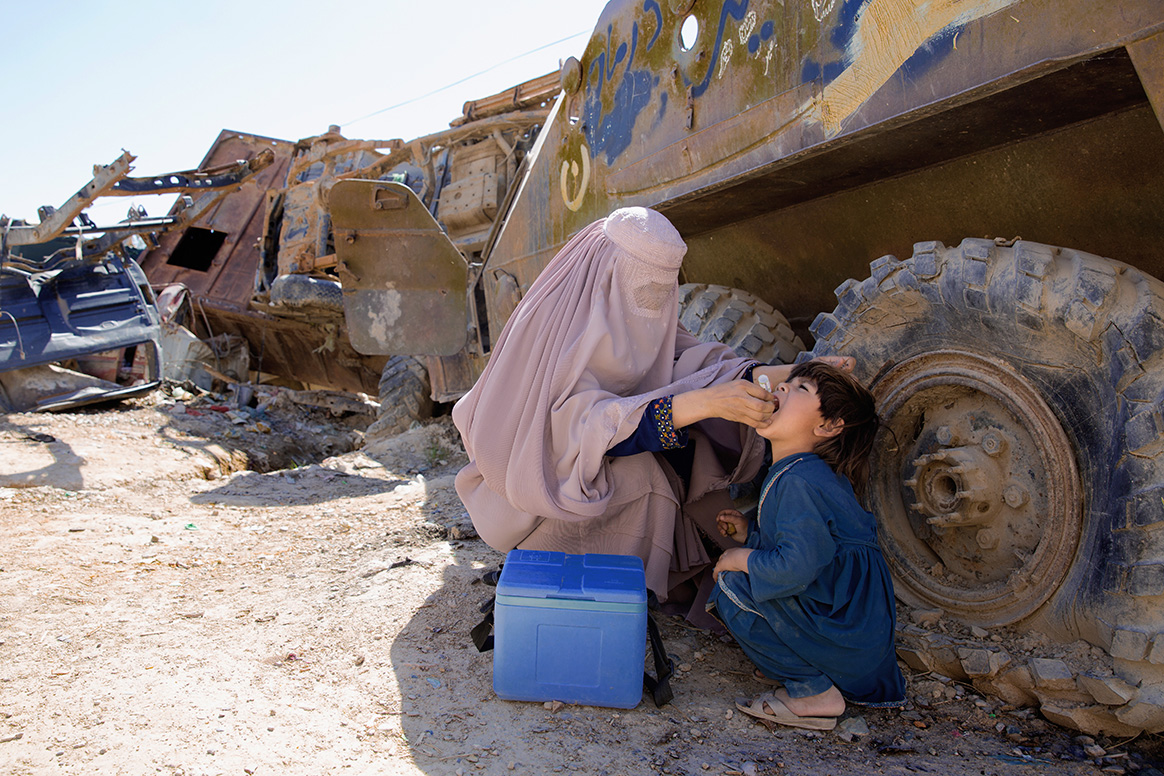
This is southern Afghanistan. A place characterized by a rich, diverse, but often complex history. Enveloped by mountains, this part of the country has seen years of conflict which have left hospitals under-resourced and health services shattered. Children face many challenges – as well as conflict and poverty, southern Afghanistan has the highest number of polio cases in the world.
In this difficult environment, the virus can only be defeated if every child is vaccinated.
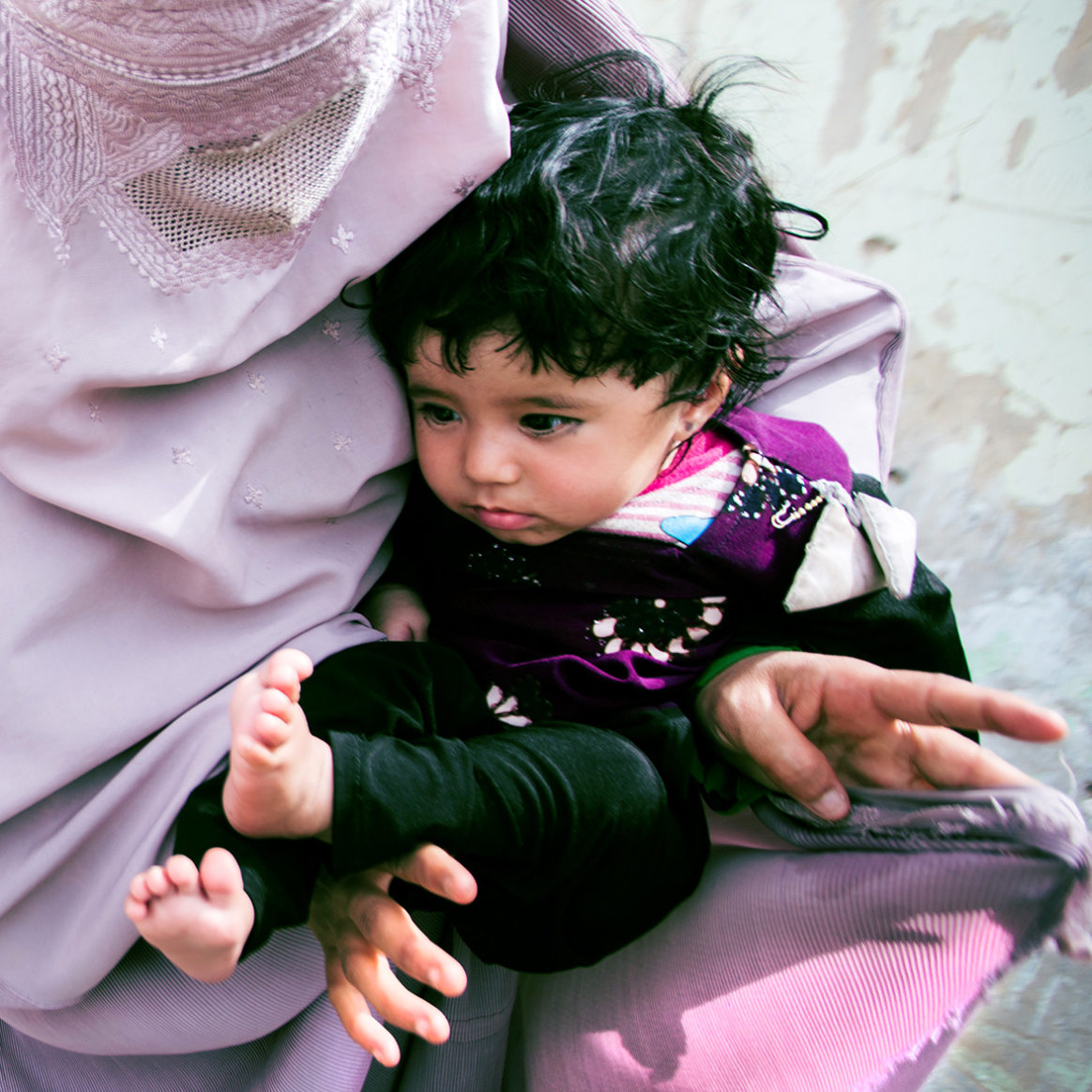
Afia (not her real name), who is nineteen years old, is one of over 70 000 committed polio workers in Afghanistan, supported by WHO and UNICEF. Last month, she and her colleagues vaccinated 9.9 million children and educated thousands of parents about vaccination across the country.
The polio eradication programme comprises one of the biggest female workforces in Afghanistan: a national team, all fighting polio. Some women work as vaccinators, whilst others, like Afia, are mostly engaged in education and social mobilisation efforts. The polio programme gives women culturally-appropriate opportunities to work outside the house and engage in their community, speaking to parents about the safe, effective polio vaccine, and answering their questions. Often, women vaccinators offer other kinds of health advice, including recommendations for good child and maternal health.
To be a good vaccinator and educator, women must be committed to better health for all, with strong communication skills. They must also be organized to ensure that every child is reached during the campaign.
Afia says that if she wasn’t eradicating polio, her parents would expect her to give up her education and get married. Her younger sisters look up to her, excited to work in the polio eradication programme when they are old enough.
Her job is very important to protect all children. Afghanistan is just one of three countries – the others are Nigeria and Pakistan - that have never interrupted poliovirus transmission.
Women can vaccinate children who might otherwise miss out. Culturally, male vaccinators are unable to enter households to administer vaccine, causing difficulties if young children are asleep or playing inside. Their freedom to enter homes and give the vaccine to every child is one reason female polio workers are so critical.
Afia started work at 7 am, and is now walking home ten hours later with a young boy she has just vaccinated. Her purple burka stands out against the sand as she goes home to tell her parents and siblings about her day.
Afia feels positive about the future of polio eradication in Afghanistan: “We have a duty to protect our children, and I won’t stop working until every child is protected.”
Women have a right to participate in all aspects of polio eradication. Removing barriers to women’s full participation at all levels is a key goal for the Global Polio Eradication Initiative (GPEI). To learn more, see the gender section of our website, and read the GPEI ‘Why Women’ Infographic.
